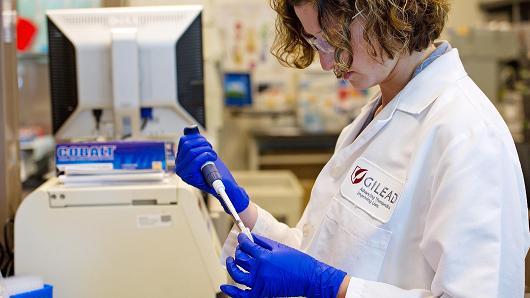What’s your go-to home remedy when you get a cold? Most people have a technique for supposedly boosting their immune system, whether it’s eating yogurt with probiotics, drinking tall glasses of water mixed with EmergenC, or taking zinc tablets. But what if you could make a specific change to your cells so that they would immediately start to fight off the specific ailment affecting you?
Though cancer is a significantly larger and more serious issue than the common cold, scientists have long been attempting to create a treatment that realizes the hypothetical question above. As of last Wednesday, one of those scientific efforts is coming to fruition and potentially changing the way cancer is treated.
A new method of treatment, one that involves the genetic modi cation of cells, has been approved by the United States Food and Drug Administration (FDA) for use on patients. This new treatment, called Yescarta, is a form of gene therapy, a class of potential treatments for disease that is often considered controversial, though seemingly effective. Gene therapy treatments modify cells from a patient’s body by introducing new genetic material that will either fight against a disease more effectively or repair cells that are sick. Though it appears to be advantageous, gene therapy is also considered risky, and these types of treatments rarely get approved for use.
There is good reason for people to associate gene therapy with serious health risks. The earliest research on the potential uses of this therapy began in the 1990s and quickly moved to human trials, specifically for people who had debilitating or life-threatening illnesses. The results were promising, but throughout the many trials that ensued, including the ones that led to the approval of Yescarta, several people died as a result of the side effects. These deaths brought intense scrutiny, as well as several lawsuits, to the gene therapy research process, which slowed down the whole trial process.
Researchers did not stop their work completely, however, and this new treatment is the second cell- modi cation cancer treatment to garner FDA approval. The first is called Kymriah and was approved for the treatment of aggressive, acute leukemia in children and young adults. Kymriah is very expensive, costing $475,000, but patients will not be charged unless they see results in 30 days.
Yescarta was developed at the National Cancer Institute by Dr. Steven Rosenberg and his team of researchers. Currently, it has only been approved for use on adults with late-stage non-Hodgkin’s lymphoma who have not responded to chemotherapy. Non- Hodgkin’s lymphoma is a type of cancer that begins in the bloodstream and lymphatic system—your body’s network for ridding the body of waste—and affects white blood cells. Because blood and lymph move throughout the body, this form of cancer can spread quickly. With Yescarta, immune cells from the patient’s body, specifically disease-fighting T-cells, are removed, modi ed and put back in the body so that they attack the specific cancer cells. The process takes about 17 days.
In the trials, 39 percent of patients achieved long- term, complete remission, meaning that the cancer was completely gone from their bloodstream. These percentages are promising, and there are already testimonies from people who were able to return to their lives after being on the brink of death.
There is, of course, the issue of who can have access to gene therapy treatments. The price tag of Yescarta is not as high as Kymriah’s, but this new “living drug” still costs hundreds of thousands of dollars. Questions of morality arise when treatments and medications have such high costs. The pharmaceutical industry is riddled with debates about these questions and whether or not it is reprehensible to charge high prices for medications that people need in order to live. In this case, those who can afford Yescarta or Kymriah might have a better shot at remission than those who cannot.
As researchers, doctors and policymakers in and around the medical eld continue to grapple with such dilemmas, it is possible that other forms of gene therapy will appear close on the heels of Yescarta and Kymriah. Some scientists are taking the approval of these new treatments as a sign that the FDA is becoming more open to gene therapy. If that conjecture proves true, there are other treatments in the research pipeline that could emerge and potentially change the way we approach cancer treatment.







